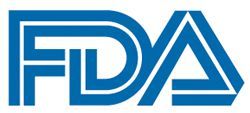FDA Grants Orphan Drug Designation to AL102 in Desmoid Tumors
The FDA has granted an orphan drug designation to AL102 as a potential therapeutic option for patients with desmoid tumors.
FDA

The FDA has granted an orphan drug designation to the gamma secretase inhibitor (GSI), AL102, as a potential therapeutic option for patients with desmoid tumors, according to an announcement from Ayala Pharmaceuticals.1
The small molecule DSI is designed to potently and selectively inhibit NOTCH gene targets by blocking the final cleavage step by the GS required for the activation of NOTCH. The phase 2/3 RINGSIDE trial (NCT04871282) is currently evaluating the agent in patients with progressing desmoid tumors.
“Receiving FDA orphan drug status for AL102 underscores the significant unmet need for novel treatment options for people living with desmoid tumors. We look forward to continuing to work closely with regulators, clinical investigators, patients, and their families to advance this potentially important medicine and make it available to those who may benefit from it,” Kenneth A. Berlin, president and chief executive officer of Ayala Pharmaceuticals, stated in a news release.
Data from the phase 2 portion of the RINGSIDE study presented at the 2023 ASCO Annual Meeting showed that the agent was well tolerated in all dose arms. Although no complete responses were observed, it generated partial responses across all doses.2
Patients treated with 1.2 mg of AL102 once per day (n = 12) experienced an overall response rate (ORR) of 50%, and 50% of patients had stable disease (SD). The median time to response (TTR) was 6.7 months (range, 3.8-9.4). In patients treated with 4 mg of AL102 twice per week (n = 13), the agent elicited an ORR of 23.1% and a SD rate of 76.9%. The median TTR in this group was 9.8 months (range, 9.0-12.3).
In patients treated with 2 mg twice per week (n = 11), AL102 generated an ORR of 45.5%, a SD rate of 36.4%, and a progressive disease rate of 18.1%. The median TTR was 9.1 months (range, 6.4-9.2).
Regarding safety, the majority of adverse effects (AEs) were grade 1 (approximately 71%) or grade 2 (approximately 25%). No grade 4 or 5 AEs were reported. Although 14% of patients experienced serious AEs, they were deemed unrelated to AL102 by investigators.
Additionally, AEs led to treatment discontinuation in 14% of patients, and all occurred within the first 3 months of treatment. Grade 2 AEs that led to discontinuation included rash, keratitis, stomatitis, diarrhea, and elevated alanine aminotransferase.
Ovarian dysfunction was reported in 43% of evaluable women (n = 23) across all dose arms; however, this rate was 33% (n = 3/9) in the 1.2 mg per day arm.
The phase 2 portion of the study included patients at least 18 years of age with relapsed/refractory or treatment-naive desmoid tumors with tumor growth of at least 10% of the sum of largest diameters within the past 18 months or had desmoid tumor–related pain that was not adequately controlled with nonopioid medication.2,3 A measurable lesion on MRI was also required.
Patients were randomly assigned to 1 of 3 treatment arms: AL102 at 1.2 mg once daily; AL102 at 2 mg on a 2-days-on/5-days-off schedule; or AL102 at 4 mg on a 2-days-on/5-days-off schedule. Patients enrolled on the open-label extension of the trial received AL102 at 1.2 mg per day. Phase 3 is evaluating 1.2 mg of AL102 per day vs placebo.2
The primary end point of phase 2 was safety, and tumor volume reduction was a secondary end point.
Among all enrolled patients in phase 2 (n = 42), the median age was 38.5 years (range, 19-72). The majority of patients were female (73.8%), had extra abdominal desmoid tumors (73.8%), and received prior therapy for desmoid tumors (69.0%). The median tumor size was 61.0 mm (range, 0-169).
Prior therapies included chemotherapy (47.6%), a targeted small molecule (28.6%), and hormonal therapy (21.4%). Additionally, 47.6% of patients underwent prior surgery for desmoid tumors, and 9.5% received prior radiotherapy.
Additional data showed that in the 1.2-mg arm, the median change in tumor volume from baseline was –51.9% at week 16, –76.4% at week 28, and –75.9% at week 40. The median change in TW2 signal intensity was –58.4%, –77.8%, and –85.2% at weeks 16, 28, and 40, respectively. The median change in the sum of diameters per RECIST v1.1 criteria was –13.3%, –29.4%, and –22.8% at weeks 16, 28, and 40, respectively.
Patients treated in the 4-mg arm achieved a median change in tumor volume from baseline of –9.5% at week 16, –35.5% at week 28, and –63.4% at week 40. The median change in TW2 signal intensity was –37.9%, –42.1%, and –56.6% at weeks 16, 28, and 40, respectively. The median change in the sum of diameters per RECIST v1.1 criteria was 1.7%, –9.6%, and –16.7% at weeks 16, 28, and 40, respectively.
For patients given 2 mg of AL102 twice per week, the median change in tumor volume from baseline was –15.2% at week 16, –51.2% at week 28, and –61.2% at week 40. The median change in TW2 signal intensity was –28.2%, –50.2%, and –54.9% at weeks 16, 28, and 40, respectively. The median change in the sum of diameters per RECIST v1.1 criteria was –7.2%, –7.1%, and –22.0% at weeks 16, 28, and 40, respectively.
Enrollment is ongoing for the phase 3 portion of RINGSIDE.
References
- Ayala Pharmaceuticals announces AL102 receives orphan drug designation for desmoid tumors. News release. Ayala Pharmaceuticals. November 6, 2023. Accessed November 6, 2023. https://ir.ayalapharma.com/news-releases/news-release-details/ayala-pharmaceuticals-announces-al102-receives-orphan-drug
- Gounder MM, Jones RL, Chugh R, et al. RINGSIDE phase 2/3 trial of AL102 for treatment of desmoid tumors (DT): Phase 2 results. J Clin Oncol. 2023;41(suppl 16):11515. doi:10.1200/JCO.2023.41.16_suppl.11515
- A study of AL102 in patients with progressing desmoid tumors (RINGSIDE). ClinicalTrials.gov. Updated August 30, 2023. Accessed November 6, 2023. https://www.clinicaltrials.gov/study/NCT04871282



